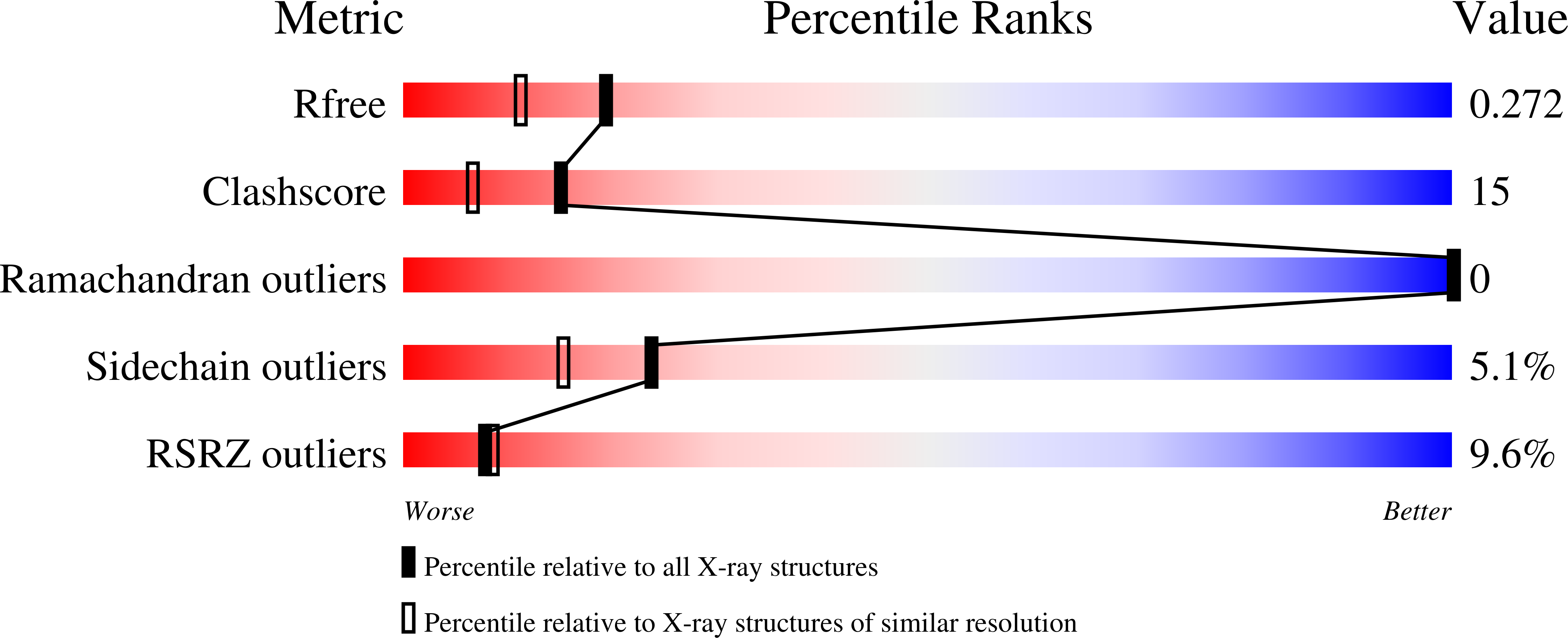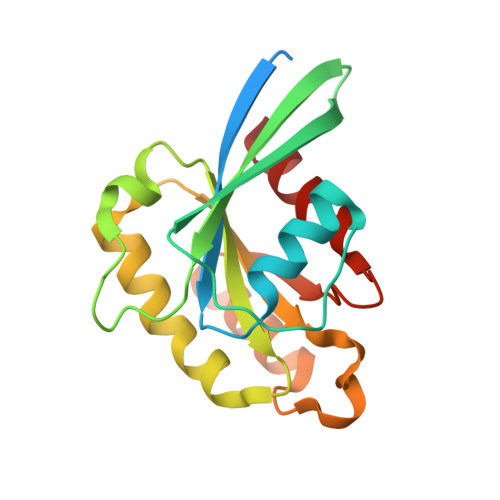The Structural Gdp/GTP Cycle of Rab11 Reveals a Novel Interface Involved in the Dynamics of Recycling Endosomes
Pasqualato, S., Senic-Matuglia, F., Renault, L., Goud, B., Salamero, J., Cherfils, J.(2004) J Biol Chem 279: 11480
- PubMed: 14699104
- DOI: https://doi.org/10.1074/jbc.M310558200
- Primary Citation of Related Structures:
1OIV, 1OIW - PubMed Abstract:
The small GTP-binding protein Rab11 is an essential regulator of the dynamics of recycling endosomes. Here we report the crystallographic analysis of the GDP/GTP cycle of human Rab11a, and a structure-based mutagenesis study that identifies a novel mutant phenotype. The crystal structures show that the nucleotide-sensitive switch 1 and 2 regions differ from those of other Rab proteins. In Rab11-GDP, they contribute to a close packed symmetrical dimer, which may associate to membranes in the cell and allow Rab11 to undergo GDP/GTP cycles without recycling to the cytosol. The structure of active Rab11 delineates a three-dimensional site that includes switch 1 and is separate from the site defined by the Rab3/Rabphilin interface. It is proposed to form a novel interface for a Rab11 partner compatible with the simultaneous binding of another partner at the Rabphilin interface. Mutation of Ser(29) to Phe in this epitope resulted in morphological modifications of the recycling compartment that are distinct from those induced by the classical dominant-negative and constitutively active Rab11 mutants. Recycling endosomes condensed in the perinuclear region where they retained recycling transferrin, and they clustered Rab11- and EEA1-positive membranes. Altogether, our study suggests that this mutation impairs a specific subset of Rab11 interactions, possibly those involved in cytoskeleton-based movements driving the slow recycling pathway.
Organizational Affiliation:
Laboratoire d'Enzymologie et Biochimie Structurales, CNRS UPR 9063, Avenue de la Terrasse, 91198 Gif sur Yvette, France.
















